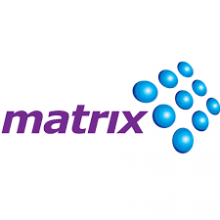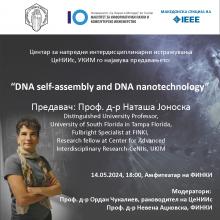| Име на трудот |
Место |
Држава |
|---|
| Artificial Chromosomes as Genetic Disks: A Systems Software Metaphor for Genetic Engineering |
IEEE SoutheastCon2010 |
NC, USA |
| Biped Robots: From Inverted Pendulum to Programming 12dof Dancing Postures |
Proc. Seventh International Conference for Informatics and Information Technologies |
Macedonia |
| Redesign Of The CDNH Portal |
Proc. Seventh International Conference for Informatics and Information Technologies |
Macedonia |
| Ciit 2010 Web Application |
Proc. Seventh International Conference for Informatics and Information Technologies |
Macedonia |
| Data Driven Intelligent Systems |
ICT Innovations 2010 |
Macedonia |
| Information/Material Processing Synergy: Flexible Manufacturing and Operating System Metaphor for a Biological Cell |
ICT Innovations 2009, Springer LNS |
Macedonia |
| A Different Approach to Information Technology - Teaching the Intelligent Systems Course |
chapter in Technology, Education and Development |
|
| ’Intelligent Systems’ – The Course |
Proc. Sixt International Conference for Informatics and Information Technologies |
Macedonia |
| CDNH Portal |
Proc. Sixt International Conference for Informatics and Information Technologies |
Macedonia |
| File System Concepts in minimal biological systems |
Proc. Sixt International Conference for Informatics and Information Technologies |
Macedonia |
| New Support Vector Machine-based approach over DNA chip data” |
Proc. Innovations ‘08 |
United Arab Emirates |
| Achievements and Results of Center for Digitization of the National Heritage of Macedonia |
Review of the National Center for Digitization |
Serbia |
| Educational Aspects of Digitization of National Heritage |
Review of the National Center for Digitization |
Serbia |
| Cell Operating system and its Compilation Processes |
Proc. Fifth International Conference for Informatics and Information Technologies |
Macedonia |
| Next Generation Operating Systems: A Biologically Inspired Future |
Proc. 2nd Annual IEEE Systems Conference |
Canada |
| Real-Time Systems – Biologically Inspired Future |
Journal of Computers, Vol. 3, No. 3, Academy Publisher |
|
| Evolving an emotion-based neural control architecture |
Proc. IEEE Southeastcon 2008 |
Al, USA |
| Intelligent Systems for computer science students |
Proc. INTED 2008 - International Technology, Education and Development Conference |
Spain |
| Cytogenesis of a Neural Cell -Phenomics of Emotion-Based Neural Control |
Proc. 11th Multi-conference on Systemics, Cybernetics and Informatics, Volume IV |
Fl, USA |
| A New Frontier for Real-Time Systems – Lessons From Molecular Biology |
Proc. IEEE SoutheastCon 2007 Linking Future with Past |
VA, USA |
| Криптографски аспекти за безбедна комуникација |
Годишник на Полициската Академија, (2) 3 |
Macedonia |
| Softvare for digitization of ancient glagolic handwritten manuscripts |
Book of extended Abstracts of the First SEEDI Conference |
Macedonia |
| Pilot Projects in Armenia and Macedonia |
Technical Report, Information and Communication Division, Department of Information Technology and Media |
Sweden |
| Teaching Bioinformatics to Computer Science Students |
Proceedings of IEEE EUROCON 2005 – The International Conference on “Computer as a Tool |
Serbia |
| Production Systems of the Biological Cell |
Proc. Fourth International Conference on Informatics and Information Technology |
Macedonia |
| Distance Learning Robotics |
Proceedings of Workshops on Computer Science Education |
|
| Closed Loop DNA Operating System Migration |
Proceedings of the Seventh World Multiconference on Systemics, Cybernetics, and Informatics, Vol 8 |
Fl, USA |
| Push Technology |
Wireless and Mobile Technologies |
Macedonia |
| Distributed Interactive Robotics Classroom |
in Optoelectronic Information – Power Technologies, No. 2(4) |
Ukraine |
| Simulation of Module – Based digital Networks Using Object Oriented Programming” |
Chapter 2 in Recent Advances in Java Technology: Theory, application, Implementation |
UK |
| Internet – Based Robot Control |
Proc. Third International Conference on Informatics and Information Technology |
Macedonia |
| Internet – Education - Robotics |
Proc. Third International Conference Internet – Education – Science IES – 2002 |
Ukraine |
| Digital Chips Network Simulation Using Object Oriented Programming |
Proc. Inaugural Conference on the Principles and Practice of Programming in Java |
|
| Minimal Cognition Systems – Current metaphors |
Proc. Sixth International Conference on Cognitive and Neural Systems |
MA, USA |
| Biological Cell and its System Software |
Proc. Second International Conference on Informatics and Information Technology |
Macedonia |
| DNA as a Real Time Database Operating System |
Proceedings of the Fifth World Multiconference on Systemics, Cybernetics, and Informatics, Vol 15 |
Fl, USA |
| Emotion learning: An approach toward self - supervised learning systems |
Proc. Fifth International Conference on Cognitive and Neural Systems |
MA, USA |
| Cyber Case: An Internet based tool for support of team analysis of neuromuscular structures |
EMG Net Final Report: The Multifunctional Platform for EMG Studies – Part I |
|
| Pregnancy EMG: A smooth muscle EMG study |
EMG Net Final Report: The Multifunctional Platform for EMG Studies – Part I |
|
| An Internet server for EMG-based analysis of neuro-muscular structures |
Application of Advanced Information Technologies to Medicine |
Bulgaria |
| A WEB-based tool for collection and analysis of EMG data |
Proceedings of the Second International Conference “Internet, Education, Science |
Ukraine |



